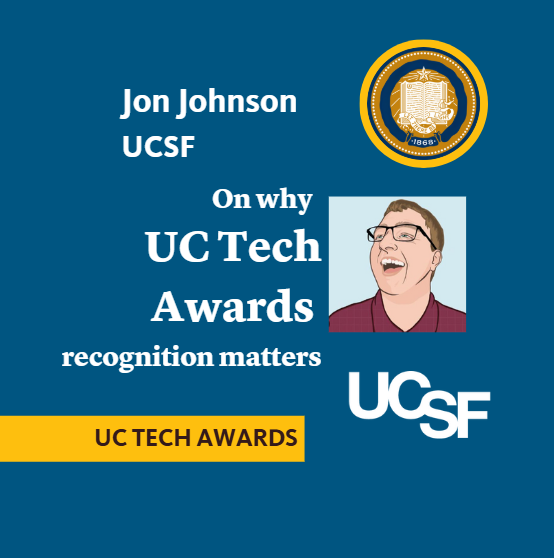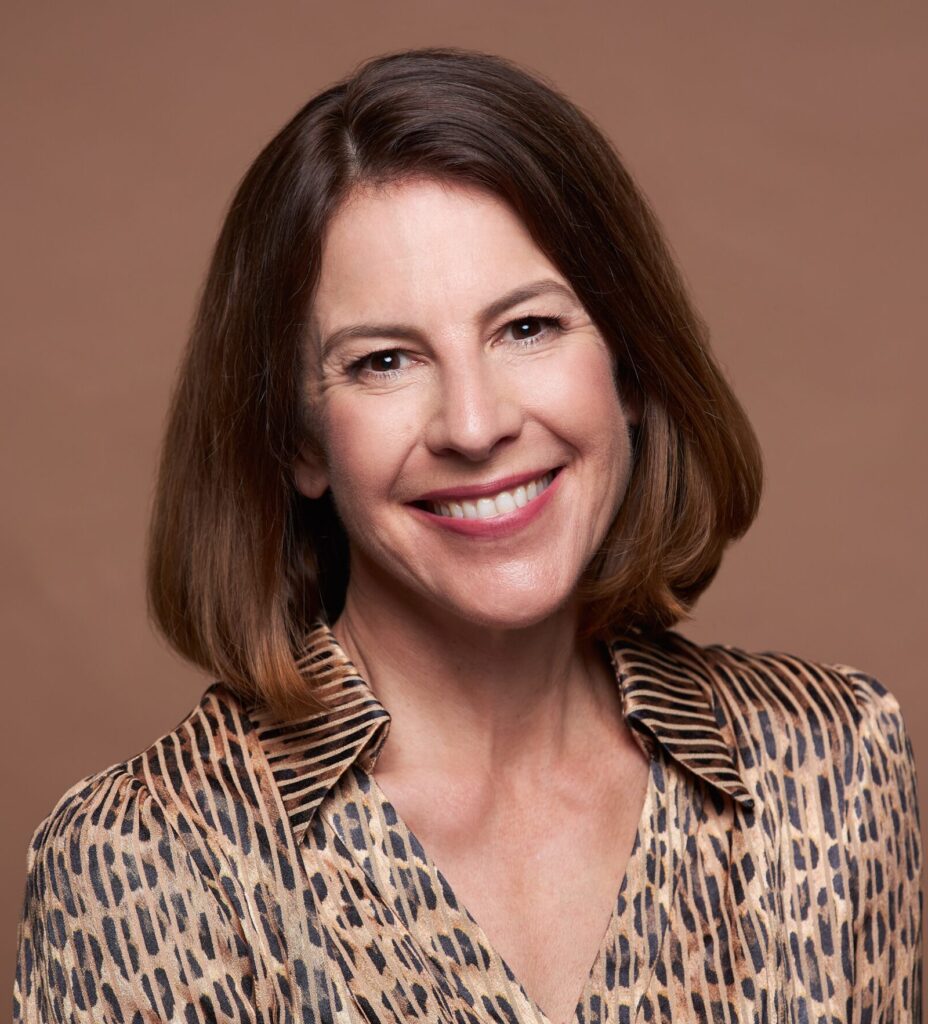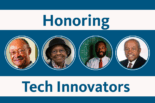Jon Johnson, an education IT architect at UCSF, has been pivotal in developing Ilios, a curriculum management tool used by UCSF’s School of Medicine. Jon and his team recently won the UC Tech Awards 2024 Larry L. Sautter Golden Award for Innovation in Information Technology. In this UC Tech News interview, Jon shares insights into his career, the value his team places on the UC Tech community and awards program, as well as the management practices that have driven Ilios’s success. He explains how working toward leadership trust, and the team members culture of kindness and curiosity keeps them ahead of the curve when it comes to customer service and technical excellence.
From Vision to Reality: The story of Ilios
Named after the Greek word for “sun,” Ilios supports competency-based medical curricula, enabling students to complete complex learning sequences. Originally a UCSF collaboration, it is now open-source andwidely adopted by dozens of health science schools around the world and supported by Ilios Project Consortium members UC Irvine and Stanford. Jon attributes Ilios’s longevity to automated testing and modern frameworks, which ensure agility and security.
Jon emphasized that sustaining software like Ilios in a university setting requires overcoming technical debt and budget constraints. His team’s commitment to robust testing and agile practices has kept Ilios at the forefront of curriculum management for over a decade.
Two types of success factors – technical and cultural
1. Technical success factors: automation + accessibility
The Ilios team thrives on user-focused, agile development, supported by leadership trust in continuous improvement vs ever being “done.” Testing is embedded in every system update, drastically reducing the challenge of remaining current on security and usability challenges. Jon emphasizes that automation is also key to success. On the day of the UC Tech News interview, a Monday, the team had already merged six updates to ensure it is as current as possible.
“It takes a really good, automated testing – that is the number one thing, because a human cannot possibly keep up with the pace of change this week.”
Jon Johnson, UCSF
Further, Jon emphasizes, the application prioritizes accessibility, usability, and adaptability, serving diverse user needs, even on older hardware or low-bandwidth networks.
2. Cultural success factors: kindness and curiosity + leadership trust
Jon emphasizes elements of team culture, that he deems critical to success, underscoring leadership trust and strong team dynamics. He upholds two team values: (1) kindness: and (2) curiosity, and explains that he considers these qualities more important than buzz words like “Scrum” or “Agile.” He emphasizes that both kindness and curiousity have been central to the success of Ilios. He what lies behind simple terms like “kindness” and curiosity, stating that they exercise an innate intelligence that allows them to be open to new ideas and to collectively break down and resolve complex issues together. Interestingly, these are the very steps that allow them to innovate.
Jon defines leadership trust as the foundation of exceptional teamwork and innovation. He described two important steps to trust-building: (1) articulating, and reinforcing, a consistent vision. (In this case their leaders talked about buildng a tool that is used around the world); (2) understaning that projects like these are never ‘done,’ and that, as leaders, they must entrust their team to make continual improvements over time, vs reacting by introducing new resources or by making changes in the process itself. He synethcized his appreciate for his leadership, saying:
“I value UCSF School of Medicine leadership for their vision to build a tool that is used around the world and for their ongoing trust, built over decades, in our team and in our process.”
Jon Johnson, UCSF
Jon Johnson’s career journey – and the value of UC Tech
After earning a master’s degree in Student Life from the University of the Pacific, Jon began his career at UCSF as a Student Progression coordinator, processing dissertations and ensuring academic progression for UCSF students. After early wins in technology, including collaborating with renowned faculty like MacArthur Genius Award recipient Joseph DeRisi, he discovered a passion for building software, noting its limitless adaptability and the opportunity for continuous improvement. Over the years, he began specializing in creating large-scale, multi-campus applications, including a graduate application system and Ilios, thanks to his work with diverse teams and leaders. Nearly 20 years later, his dedication to innovation and his impact on academic technology remain integral to his career at UCSF.
Jon describes the UC Tech conference as the “single greatest catalyst for career growth. Initially introduced to the conference by Erik Wieland at UCSF, who followed up with connecting Jon to other attendees and invitations to community events, the conference became a turning point in his career. The event revealed a network of developers and collaborators from across campuses, previously unknown to him. Connections formed with individuals like Judy Dobry, UC California Digital Library, and Seth Roby from UC Irvine, who share a passion for building innovative solutions. These relationships, nurtured year after year at UC Tech, underscore its value as a unique community for collaboration. Always an advocate for participation, Jon has become UCSF’s UC Tech Ambassador and followed Erik’s example in encouraging others to attend, noting the supportive role UCSF played in covering costs for award winners, which streamlined the process and made the experience even more impactful for the team in 2024.
“These are people that build stuff, and it’s hard to find people like that, but I find them at UC tech. This is why I love it. I always get anyone I can to go as well. It’s an easy sell for me. UCSF also agreed to pay for award winners to go, which was nice of them, and made the process a lot smoother.”
Jon Johnson, UCSF
Thank you, Jon, for also reminding the community why recognition matters. This video clip provides his thoughts on this important topic.

Personal values: teaching, goal-setting and community volunteer
Jon finds satisfaction in solving meaningful problems, such as developing a COVID-19 screening tool for UCSF, an impressive and live-changing feat for all in the San Francisco Bay Area and beyond.
Beyond work, Jon and his wife are active with the San Francisco Society of Prevention of Cruelty to Animals (SF SPCA). They also practice yoga, emphasizing discipline and regular improvement—principles he applies to his professional life, as well. During his lecture at the 2024 UC Tech Conference, he underscored that, he does yoga not because he finds it particularly enjoyable, but because it works.

Thank you, Jon, for sharing your journey, for your ongoing sense of humor and leadership in supporting the UC Tech community through the UC Tech Ambassadors program, and for inspiring others with dedication and generosity.
Related Reading
Author

Marketing & Communications
UC Office of the President







